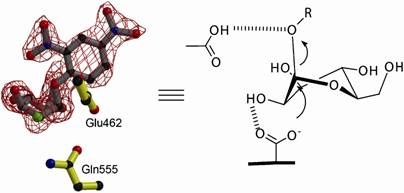Professor Ulrich Schubert receives 2009 Wacker Silicone Award
Advertisement
This year’s €10,000 Wacker Silicone Award was presented to Professor Ulrich Schubert, who holds the Vienna University of Technology’s chair of inorganic chemistry. Dr. Rudolf Staudigl, President and CEO of Wacker Chemie AG, said that Schubert had been chosen because of his trailblazing work on metal-silicon complexes and his materials science studies such as the sol-gel process. Wacker CEO Dr. Rudolf Staudigl described this year’s award winner as a major researcher in organosilicon chemistry. “Professor Schubert has had a formative and enriching influence on silicon research. His work on metal-silicon and metal-tin complexes and his materials science studies regarding the sol-gel process are trailblazing.” He added that the diversity of fields that Schubert had covered during his academic career was truly impressive. “His research ranges from the fundamentals to materials chemistry. Because much of his work has practical relevance, it remains important not only academically, but also industrially.” The focus of Professor Schubert’s early research encompassed metal-silicon and metal-tin complexes exhibiting metal-hydrogen-silicon and metal-hydrogen-tin three-center two-electron bonding. Shedding light on these bonds provided a deeper understanding of the mechanisms exhibited by silicon-hydrogen bonding to a transition metal such as platinum. These processes play a key role, for instance, in the production of silicone elastomers and organofunctional silanes. Other topics of his work include silyl complexes of precious and semiprecious metals, and studies on fundamental organometallic reactions such as the oxidative addition and reductive elimination of silicon-element and tin-element bonds to metals. In the mid-1980s, Schubert started shifting his focus to the materials sciences, especially the sol-gel process. His research highlighted basic mechanisms and industrial applications of his findings. For example, he was the first person to develop organically modified silicone aerogels and he devised a method of producing metal oxides and metal nanoparticles with a narrow particle-size distribution within a silicon dioxide matrix generated by the sol-gel process. This process has considerable potential for catalysis applications, for instance. Additionally, Schubert investigated the synthesis of titanium and zirconium clusters with polymerizable organic ligands. The appeal of this field was that such clusters could be incorporated into organic polymers for the first time. As a result, the mechanical properties of materials can be enhanced, or materials can be given special optical or electrical properties. Wacker CEO Staudigl: “Professor Schubert has demonstrated impressively how the innovative potential of organosilicon chemistry can be exploited even more effectively.” Born in Regensburg in 1946, Prof. Ulrich Schubert studied chemistry at the Technical University of Munich (TUM). In 1974, he obtained his doctorate in the lab group of Prof. E. O. Fischer, winner of the 1973 Nobel Prize in Chemistry. For his post-doc work, he attended Stanford University in Palo Alto, USA, from 1975 to 1976. His academic career began in 1980 when he became a lecturer at TUM. In 1982, he was appointed C3 Professor of inorganic chemistry at the University of Würzburg. From 1989, he also headed the “Inorganic-Organic Polymers” department at the Fraunhofer Institute of Silicate Research (ISC) in Würzburg. Since 1994, he has held the Vienna University of Technology’s chair of inorganic chemistry and headed its Institute of Materials Chemistry.
Other news from the department science
Most read news
More news from our other portals
See the theme worlds for related content
Topic world Synthesis
Chemical synthesis is at the heart of modern chemistry and enables the targeted production of molecules with specific properties. By combining starting materials in defined reaction conditions, chemists can create a wide range of compounds, from simple molecules to complex active ingredients.

Topic world Synthesis
Chemical synthesis is at the heart of modern chemistry and enables the targeted production of molecules with specific properties. By combining starting materials in defined reaction conditions, chemists can create a wide range of compounds, from simple molecules to complex active ingredients.




























































